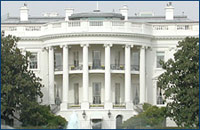Why Women Should Control Wall Street
 So last week when I received my TIAA-CREF statement (like many professors, I assume) you might have heard me scream from Milwaukee. But now I have a better idea –- I should be running the market! Tim Harford, a columnist for the Financial Times and author of The Logic of Life: The Rational Economics of an Irrational World explained last week on NPR that men are too hormonal to be running Wall Street. Yes, let me repeat that, men are too hormonal. As Mr. Harford explains,
So last week when I received my TIAA-CREF statement (like many professors, I assume) you might have heard me scream from Milwaukee. But now I have a better idea –- I should be running the market! Tim Harford, a columnist for the Financial Times and author of The Logic of Life: The Rational Economics of an Irrational World explained last week on NPR that men are too hormonal to be running Wall Street. Yes, let me repeat that, men are too hormonal. As Mr. Harford explains,
There’s a former Wall Street trader who is now a researcher at Cambridge University in the UK. His name is John Coates. What he told me was that when he ran a trading desk in Wall Street during the last dot com boom and bust, he found that his traders were exhibiting almost physical symptoms of mania. So they were punching the air. They were yelling. There was – not to put too fine a point on it – there was more pornography floating around in the office. This is of course is a very masculine, macho environment. But what John Coates also noticed was that the few women who were on the trading floor didn’t seem to be affected.


